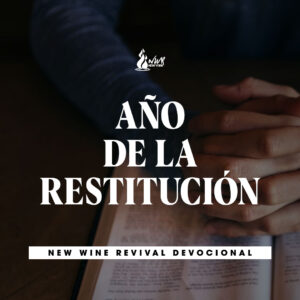
Marcos 15: 1-47
“Muy temprano en la mañana, los principales sacerdotes, junto con los ancianos, los maestros de la ley y todo el Sanedrín, hicieron sus planes. Entonces ataron a Jesús, se lo llevaron y lo entregaron a Pilato. “¿Eres tú el rey de los judíos?”, Preguntó Pilato. “Tú lo has dicho”, respondió Jesús. Los principales sacerdotes lo acusaron de muchas cosas. Así que otra vez
Pilato le preguntó: “¿No vas a responder? Mira de cuántas cosas te acusan ”.
Pero Jesús todavía no respondió, y Pilato se sorprendió. Ahora era costumbre en el festival liberar a un prisionero a quien la gente solicitara. Un hombre llamado Barrabás estaba en prisión con los insurrectos que habían cometido un asesinato en el levantamiento. La multitud se acercó y le pidió a Pilato que hiciera por ellos lo que solía hacer.
“¿Quieres que te suelte al rey de los judíos?”, Preguntó Pilato, sabiendo que era por interés propio que los principales sacerdotes le habían entregado a Jesús. Pero los principales sacerdotes animaron a la multitud para que Pilato liberara a Barrabás en su lugar. “¿Qué haré, entonces, con el que llamas rey de los judíos?”, Les preguntó Pilato. “¡Crucifícalo!”, Gritaban. “¿Por qué? ¿Qué crimen ha cometido? ”, Preguntó Pilato. Pero gritaron aún más fuerte: “¡Crucifícalo!” Queriendo satisfacer a la multitud, Pilato les soltó a Barrabás. Hizo azotar a Jesús y lo entregó para que lo crucificaran.
Los soldados llevaron a Jesús al palacio (es decir, el Pretorio) y convocaron a toda la compañía de soldados. Le pusieron una túnica púrpura, luego torcieron una corona de espinas y se la pusieron. Y empezaron a gritarle: ¡Salve, rey! “¡Salve, rey de los judíos!” Una y otra vez le golpearon en la cabeza con un bastón y le escupieron. Cayendo de rodillas, le rindieron homenaje. Y cuando se burlaron de él, se quitaron la túnica púrpura y le pusieron su propia ropa. Luego lo sacaron para crucificarlo.
Un cierto hombre de Cirene, Simón, el padre de Alejandro y Rufo, pasaba por su camino desde el país y lo obligaron a llevar la cruz. Trajeron a Jesús al lugar llamado Gólgota (que significa “el lugar de la calavera”). Luego le ofrecieron vino mezclado con mirra, pero él no lo tomó. Y le crucificaron. Dividiendo su ropa, echaron un montón para ver lo que cada uno obtendría. Eran las nueve de la mañana cuando lo crucificaron. El aviso escrito de la acusación contra él decía: el rey de los judíos.
Crucificaron con él a dos rebeldes, uno a su derecha y otro a su izquierda. Los que pasaron
lanzaron insultos hacia él, sacudiendo la cabeza y diciendo: “¡Así que tú que vas a destruir el
templo y edificarlo en tres días, baja de la cruz y sálvate a ti mismo! ”Del mismo modo, los
principales sacerdotes y los maestros de la ley se burlaron de él entre ellos. “Él salvó a otros”, dijeron, “¡pero no puede salvarse a sí mismo! Que este Mesías, este rey de Israel, descienda ahora de la cruz, para que podamos ver y creer ”. Los que fueron crucificados con él también le lanzaron insultos.
Al mediodía, la oscuridad recorrió toda la tierra hasta las tres de la tarde. Y a las tres de la tarde, Jesús gritó en voz alta: “Eloi, Eloi, ¿lema sabachthani?” (Que significa “Dios mío, Dios mío, ¿por qué me has abandonado?”). Cuando algunos de los que estaban cerca escucharon esto, dijeron: “Escuchen, él está llamando a Elías”. Alguien corrió, llenó una esponja con
vinagre de vino, lo puso en un bastón y se lo ofreció a Jesús para que lo bebiera. “Ahora déjalo
solo. A ver si Elijah viene a derribarlo “, dijo. Con un fuerte grito, Jesús dio su último suspiro.
La cortina del templo se rasgó en dos de arriba a abajo. Y cuando el centurión, que estaba allí frente a Jesús, vio cómo murió, dijo: “¡Seguramente este hombre era el Hijo de Dios!” Algunas mujeres observaban desde la distancia. Entre ellos estaban María Magdalena, María, la madre de Santiago el menor y de José, y Salomé. En Galilea, estas mujeres lo habían seguido y atendido por sus necesidades. Muchas otras mujeres que habían venido con él a Jerusalén también estaban allí.
Era el día de preparación (es decir, el día antes del sábado). Así que al acercarse la tarde, José de Arimatea, un miembro prominente del Concilio, quien estaba esperando el reino de Dios, fue audazmente a Pilato y le pidió el cuerpo de Jesús. Pilato se sorprendió al escuchar que ya estaba muerto. Llamando al centurión, le preguntó si Jesús ya había muerto. Cuando supo por el centurión que era así, le entregó el cuerpo a José. Así que José compró un paño de lino, sacó el cuerpo, lo envolvió en el lino y lo colocó en una tumba cortada en la roca. Luego hizo rodar una piedra contra la entrada de la tumba. María Magdalena y María, la madre de José, vieron dónde estaba él.
Puntos para aclarar:
A medida que avanzaba la noche del jueves y llegó a la mañana del viernes, Jesús fue arrestado, golpeado y llevado a juicio por delitos que no cometió. Él fue testigo de la negación de Pedro. Lo desnudaron, lo golpearon más, lo azotaron brutalmente, le dieron una corona de espinas y lo obligaron a marchar con su cruz al lugar de su muerte. Allí, sus manos y pies serían clavados en su cruz, y él se ahogaría lentamente durante varias horas. Cuando la multitud se burló y se burló, Jesús no renunció a su compromiso con nuestra redención. Sabía lo que ellos no sabían, que salvarse a sí mismo significaría la pérdida de la salvación para toda la humanidad. Mientras se encontraba en agonía, oró por sus crucificadores: “Padre, perdónalos, porque no saben lo que están haciendo” (Lucas 23:34 ). Su cuerpo roto hacia fuera era solo una imagen de su corazón roto. Cuando la oscuridad cubrió el cielo a mediodía, Jesús se convi
rtió en el maldito (Gálatas 3:13) y se convirtió en pecado (2 Corintios 5:21) para que pudiéramos ser justos. Debemos ver que su muerte le costó mucho a Dios y, por lo tanto, que Dios nos ama más de lo que podemos imaginar.
Reflejxionar::
¿Qué le dio a Jesús la capacidad de soportar el dolor y la crueldad de la cruz? ¿Cómo influye el sufrimiento de Jesús en la cruz en nuestra capacidad para soportar el abuso y el maltrato?
Exprese su desesperada necesidad de la gracia de Dios, seguido de su aprecio por el don de su Hijo.
Oración:
Buen Padre, confieso que necesito tu salvación. Estoy viciado, roto y culpable. Merezco el castigo de un criminal, no de tu amor. Pero en tu gracia infinita enviaste a Jesús a la cruz en mi lugar, para que asumiera mi pecado y mi condenación para que no tuviera yo que hacerlo. Él sufrió y murió para que yo pueda conocerte. Fue humillado, golpeado y asesinado para pagar la deuda que debo. Nunca entenderé completamente tu amor por mí, pero Señor, siempre estaré agradecido. Soy libre a causa de tu amor abnegado. Amén.
The king
Mark 15: 1-47
Very early in the morning, the chief priests, with the elders, the teachers of the law and the whole Sanhedrin, made their plans. So they bound Jesus, led him away and handed him over to Pilate. “Are you the king of the Jews?” asked Pilate.
“You have said so,” Jesus replied.
The chief priests accused him of many things. So again Pilate asked him, “Aren’t you going to answer? See how many things they are accusing you of.”
But Jesus still made no reply, and Pilate was amazed.
Now it was the custom at the festival to release a prisoner whom the people requested. A man called Barabbas was in prison with the insurrectionists who had committed murder in the uprising. The crowd came up and asked Pilate to do for them what he usually did. “Do you want me to release to you the king of the Jews?” asked Pilate, knowing it was out of self-interest that the chief priests had handed Jesus over to him. But the chief priests stirred up the crowd to have Pilate release Barabbas instead.
“What shall I do, then, with the one you call the king of the Jews?” Pilate asked them.
“Crucify him!” they shouted.
“Why? What crime has he committed?” asked Pilate. But they shouted all the louder, “Crucify him!” Wanting to satisfy the crowd, Pilate released Barabbas to them. He had Jesus flogged, and handed him over to be crucified.
The soldiers led Jesus away into the palace (that is, the Praetorium) and called together the whole company of soldiers. They put a purple robe on him, then twisted together a crown of thorns and set it on him. And they began to call out to him, “Hail, king of the Jews!” Again and again they struck him on the head with a staff and spit on him. Falling on their knees, they paid homage to him. And when they had mocked him, they took off the purple robe and put his own clothes on him. Then they led him out to crucify him.
A certain man from Cyrene, Simon, the father of Alexander and Rufus, was passing by on his way in from the country, and they forced him to carry the cross. They brought Jesus to the place called Golgotha (which means “the place of the skull”). Then they offered him wine mixed with myrrh, but he did not take it. And they crucified him. Dividing up his clothes, they cast lots to see what each would get.
It was nine in the morning when they crucified him. The written notice of the charge against him read: the king of the jews. They crucified two rebels with him, one on his right and one on his left. Those who passed by hurled insults at him, shaking their heads and saying, “So! You who are going to destroy the temple and build it in three days, come down from the cross and save yourself!” In the same way the chief priests and the teachers of the law mocked him among themselves. “He saved others,” they said, “but he can’t save himself! Let this Messiah, this king of Israel, come down now from the cross, that we may see and believe.” Those crucified with him also heaped insults on him.
At noon, darkness came over the whole land until three in the afternoon. And at three in the afternoon Jesus cried out in a loud voice, “Eloi, Eloi, lema sabachthani?” (which means “My God, my God, why have you forsaken me?”).
When some of those standing near heard this, they said, “Listen, he’s calling Elijah.”
Someone ran, filled a sponge with wine vinegar, put it on a staff, and offered it to Jesus to drink. “Now leave him alone. Let’s see if Elijah comes to take him down,” he said.
With a loud cry, Jesus breathed his last.
The curtain of the temple was torn in two from top to bottom. And when the centurion, who stood there in front of Jesus, saw how he died, he said, “Surely this man was the Son of God!”
Some women were watching from a distance. Among them were Mary Magdalene, Mary the mother of James the younger and of Joseph, and Salome. In Galilee these women had followed him and cared for his needs. Many other women who had come up with him to Jerusalem were also there.
It was Preparation Day (that is, the day before the Sabbath). So as evening approached,
Joseph of Arimathea, a prominent member of the Council, who was himself waiting for the kingdom of God, went boldly to Pilate and asked for Jesus’ body. Pilate was surprised to hear that he was already dead. Summoning the centurion, he asked him if Jesus had already died. When he learned from the centurion that it was so, he gave the body to Joseph. So Joseph bought some linen cloth, took down the body, wrapped it in the linen, and placed it in a tomb cut out of rock. Then he rolled a stone against the entrance of the tomb. Mary Magdalene and Mary the mother of Joseph saw where he was laid.
Points to clarify:
As Thursday night progressed and Friday morning came, Jesus was arrested, beaten, and put on trial for crimes he did not commit. He witnessed Peter’s denial. They stripped him, beat him They took more, brutally flogged him, gave him a crown of thorns, and forced him to march with his cross to the place of his death. There, his hands and feet would be nailed to his cross, and he would slowly suffocate for several hours. When the crowd jeered and jeered, Jesus did not relinquish his commitment to our redemption. He knew what they didn’t, that saving himself would mean the loss of salvation for all mankind. As he lay in agony, he prayed for his crucifiers: “Father, forgive them, for they do not know what they are doing” (Luke 23:34). The broken body of him out of him was just an image of his broken heart. When darkness covered the sky at noon, Jesus became
he became the curse of our wrongdoing (Galatians 3:13) and became sin (2 Corinthians 5:21) so that we could be righteous. We must see that his death cost God dearly, and therefore that God loves us more than we can imagine.
Reflect::
What gave Jesus the ability to endure the pain and cruelty of the cross? How does Jesus’ suffering on the cross influence our ability to withstand abuse and mistreatment?
Express your desperate need for God’s grace, followed by your appreciation for the gift of his Son.
Prayer:
Good Father, I confess that I need your salvation. I’m flawed, broken and guilty. I deserve the punishment of a criminal, not your love. But in your infinite grace you sent Jesus to the cross in my place, so that he would assume my sin and my condemnation so that I would not have to. He suffered and died so that I can know you. He was humiliated, beaten and killed to pay the debt I owe. I will never fully understand your love for me, but Lord, I will always be grateful. I am free because of your selfless love. Amen.



